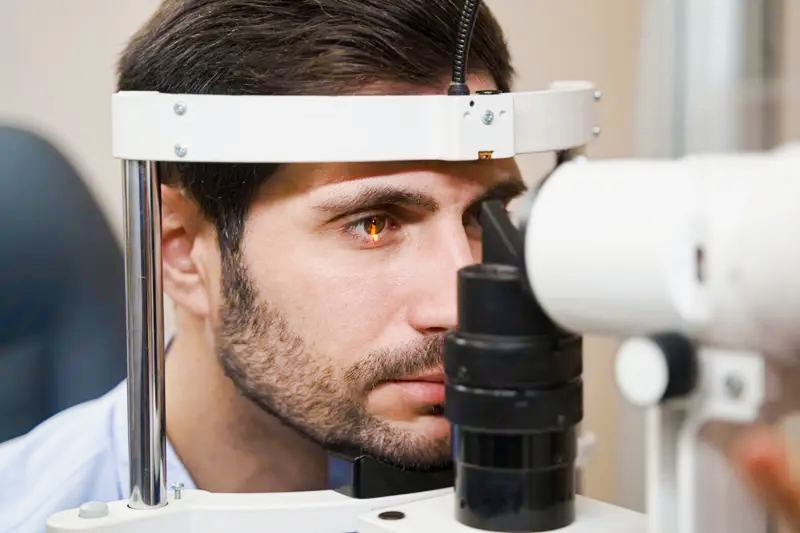In a step that could change the future of vision correction, a team of American researchers announced the development of an innovative medical technique that allows for reshaping the cornea in just one minute, without the need for lasers or surgery!
* Electric Current Instead of a Surgical Scalpel
The revolutionary technique, which is still in its early stages of development, is known as "Electromechanical Reshaping" (EMR), and it relies on using a mild electric current to temporarily change the pH level of the corneal tissue, making it more flexible, and then it can be reshaped easily, without any surgical intervention.
The researchers who developed this method from the University of California and Occidental College revealed it during the American Chemical Society meeting in the fall of 2025, noting that it could represent a qualitative leap in the field of vision correction, especially in treating myopia.
* Electric Contact Lenses
The procedure uses tiny electrodes embedded in contact lenses made of platinum, where a low electric current is applied for a brief period, leading to a temporary adjustment of the pH level in the corneal tissues.
After reshaping, the pH level returns to its normal state, causing the cornea to harden again and maintain its new shape accurately.
* No Surgery .. No Pain .. In Just One Minute
Notably, the procedure does not require any cutting or removal of tissue, and it takes about just one minute.
According to laboratory experiments, the samples that underwent the experiment showed no damage to the structure or cell death, which enhances the chances of adopting this technique in clinical use in the future.
* The Birth of an Innovation by Chance!
In a striking statement, Dr. Brian Wong, a professor and surgeon at the University of California, said:
"This technique was discovered entirely by chance! We were studying living tissues as moldable materials, and suddenly we noticed this exciting chemical reaction."
Dr. Michael Hill, a chemistry professor at Occidental College, explained that there is still a long way to go before the technique enters clinics, but he is optimistic, saying:
"If the experiments prove successful, this technique will be widely applicable, less expensive than LASIK, and perhaps even reversible in the future."
* Are We Saying Goodbye to LASIK Soon?
Although the technique is still in the experimental phase and has not yet been tested on humans, its prospects are promising, and scientists hope it will be a safer, more effective, and economical option for millions of people around the world seeking vision correction without a scalpel or laser.
So, are you ready to say goodbye to glasses?
This technique might be the awaited answer!

